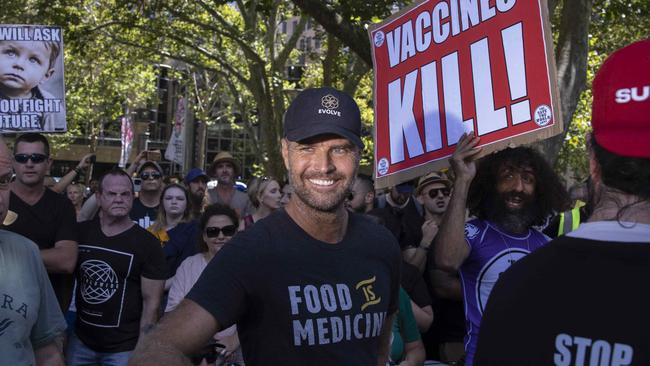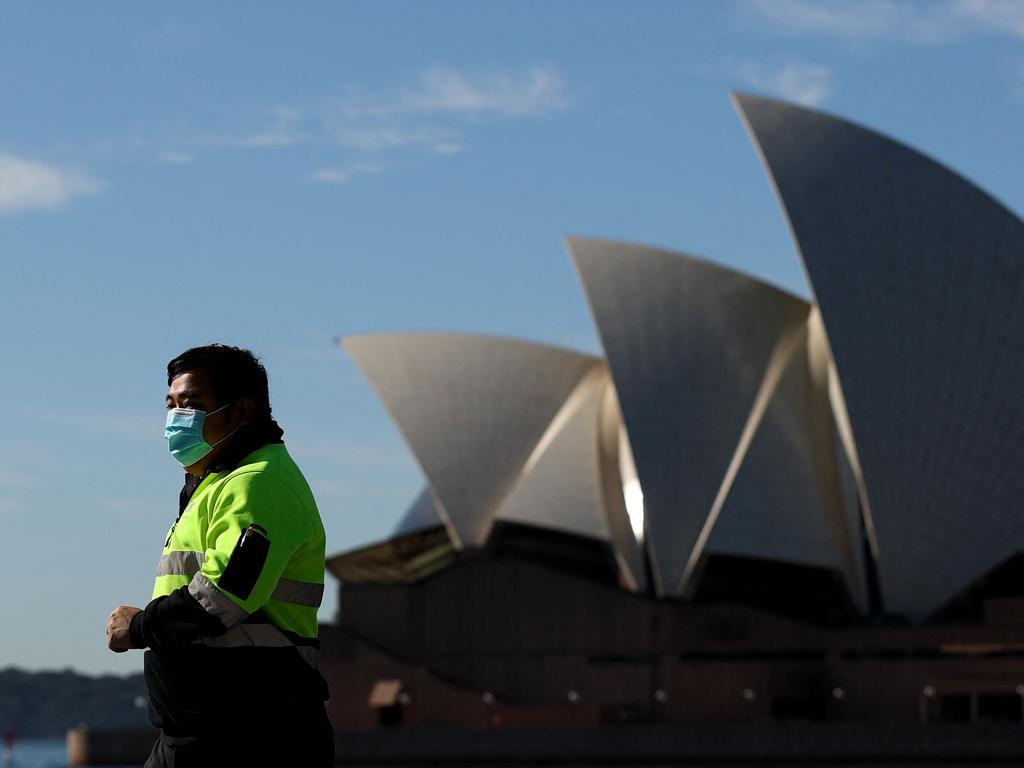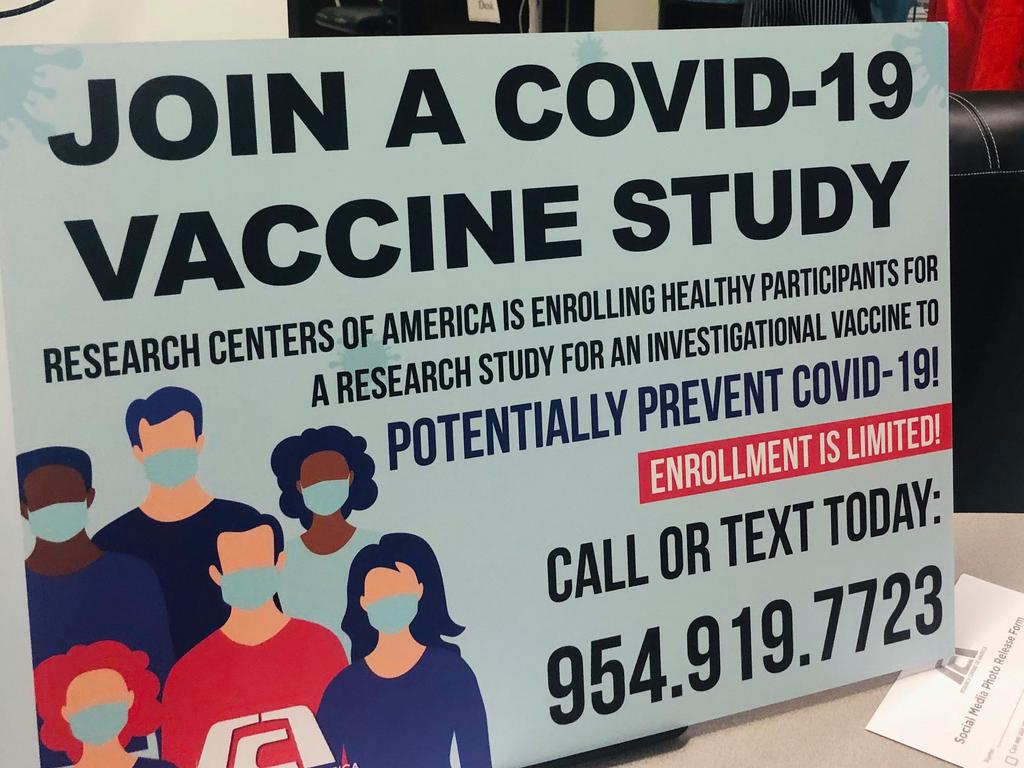
While tuberculosis was confounding 19th-century doctors, others saw an opportunity to make a buck. One of those was American entrepreneur William Radam, who wrote a book called Microbes and the Microbe Killer.
Radam claimed all diseases, including tuberculosis, came from the same source, and boasted that he had developed a cure – a potion he named the Microbe Killer. The potion sold widely, as it made its debut just as the link between germs and disease was becoming well known, yet the product amounted to nothing more than a dilute solution of sulfuric acid, and was therapeutically useless.
Today, modern quacks follow in Radam’s footsteps. Modern “wellness” gurus tout “natural remedies” for all of our modern ailments, including Covid.
The benefits of supplements, herbal oils and homeopathic remedies are exaggerated to the point of absurdity, while trust in mainstream medicine, including vaccines, is undermined. Such quacks include Australia’s Pete Evans, a staunch anti-vaxxer who was fined $80,000 for marketing a “BioCharger” that he claimed could treat “Wuhan Coronavirus”; America’s anti-vax advocate and health entrepreneur Joseph Mercola, who marketed vitamins C and D for the “conventional treatment of novel coronavirus, SARS-CoV-2”; and India’s Biswaroop Roy Chowdhury, another anti-vaxxer who claims to be able to treat Covid through diet alone.
Marketplaces on Facebook, Instagram, YouTube and Twitter are weakly regulated, and those with a little domain expertise are often able to shout their claims the loudest, reaching mass audiences on a vast scale. Instagram, in particular, has become a hotbed for simple but misleading graphics that are light on factual content and heavy on emotional appeal.
A test search for #vaccine on Instagram returns recommended results of the Gavi Alliance, International Committee of the Red Cross and Melbourne Vaccine Education Centre.
But after the first three results, the accounts selected by Instagram’s algorithm exhibit a dark turn. The fourth in the list is @visforvaccine, which promotes photos of anti-vaccination activism around the US; the fifth is @tracifrost1976 #vaccineawareness, an account that promotes false claims about vaccine injuries; and another highly ranked account in the search is @vaccine_transparency, an account that promotes disinformation about vaccine deaths.
The proliferation of anti-vax material on Instagram may be one reason young women in Australia are the group most reluctant to take the Covid vaccine. Research from the Australian National University recently found that only 43 per cent of women aged 18 to 24 were willing to get a jab as soon as possible, compared with the general population, which had a rate of 63 per cent.
Wellness gurus have a financial interest in undermining trust in mainstream science and medicine. In portraying the pharmaceutical industry and medical profession as corrupt, they are able to market their own products as viable and “natural” alternatives. This taps into a deep-seated and commonly held view that what is “natural” must be “good”.
Among the popular conspiracy theories that proliferate on social media, a general trend emerges: Governments are lying to you, vaccines are dangerous, Big Pharma and medical practitioners are in on the conspiracy, natural remedies are being suppressed and this conspiracy is motivated by power and money.
This conspiratorial literature plays upon the anxieties of the general public while capitalising on a widespread lack of scientific literacy.
But the reality is that nothing is being suppressed and there is no conspiracy. While authorities and governments have made mistakes during the Covid pandemic, the one field that has shown that it can work fast and produce results is the pharmaceutical industry. The spectacular efficacy of the vaccines is now the reason the UK is not suffering a surge of deaths, even though cases of Covid are rising rapidly.
The fraud committed by William Radam in the late 1890s with his “Microbe Killer” prompted the US to introduce the first law ever to tackle medical quackery – the Pure Food and Drug Act of 1906. This Act led to additional laws that were passed to prohibit the use of false and misleading advertising, legislation that has been emulated in other countries, including Australia.
In a free society we must accept that people are free to hold wacky beliefs, to believe in conspiracy theories, and be opposed to vaccination. But when false claims are spread in order to make a profit, political speech becomes commercial speech, which falls under the purview of consumer protection law.
While countries such as Australia have robust protections for consumers, a problem arises when these laws are unenforceable due to the global interconnectivity provided by the worldwide web. If a wellness guru in the US or India is able to influence the health choices of Australians through Facebook or Instagram, Australian regulators are left toothless and hobbled.
The real conspiracy we must confront is not between governments and Big Pharma. It is between the social media algorithms and the cynical hucksters they promote, who nudge people into making decisions that are of little benefit and, in many cases, likely to do harm.
Claire Lehmann is founding editor of online magazine Quillette.







In the 19th century, tuberculosis, commonly known as “consumption”, was responsible for about one in 10 deaths worldwide. Depicted in Tolstoy’s Anna Karenina, Hugo’s Les Miserables and Munch’s The Sick Child, consumption left its victims with a ghostly pale complexion and, as the disease progressed, a painful and bloody cough, making it one of the most feared diseases in the Western world until the discovery of antibiotics. When the Romantic poet John Keats experienced a coughing fit, he turned to a friend and said: “I know the colour of that blood; it is arterial blood – I cannot be deceived in that colour; that drop is my death-warrant.” He died at age 25.